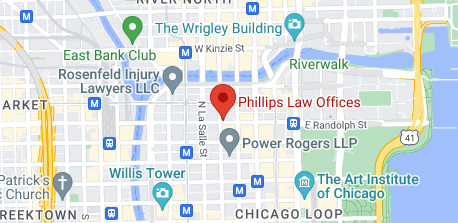Wrongful death is a legal term that describes a situation where an individual’s demise results from the actions or negligence of another party. This legal concept recognizes that certain deaths are not merely accidents but are instead directly attributable to the wrongful conduct of someone else.
The wrongful actions leading to death can take various forms, including negligence, recklessness, or intentional harm. Negligence refers to the failure to exercise a reasonable level of care, which ultimately leads to harm. Recklessness involves knowingly engaging in risky behavior without regard for potential consequences. Intentional actions, on the other hand, imply a deliberate and purposeful effort to cause harm.
Surviving family members or beneficiaries, such as spouses, children, or dependents, may have the legal right to pursue a wrongful death claim. These claims aim to hold the responsible party accountable for their actions and seek compensation for the damages incurred as a result of the loss.
Damages sought in a wrongful death case can include economic losses, such as funeral expenses, medical bills, and the lost financial support that the deceased would have provided. Non-economic damages may also be pursued, encompassing emotional pain and suffering, loss of companionship, and the overall impact on the quality of life for the survivors.
It’s essential to note that wrongful death laws can vary across jurisdictions, and the specifics of each case will depend on the circumstances surrounding the death and the applicable legal standards. Seeking legal advice from professionals specializing in wrongful death cases is crucial for navigating these complex matters.
Seeking justice for the deceased
seeking justice for the deceased goes beyond addressing the immediate loss; it plays a crucial role in healing the emotional wounds of the grieving family, preventing future incidents, and upholding the principles of justice and accountability in society:
Emotional Closure for the Grieving Family
Pursuing justice can provide a sense of closure and validation for the grieving family. Knowing that the responsible party is held accountable may offer a degree of solace and help the family cope with the emotional trauma of losing a loved one.
Deterrence and Accountability
Holding individuals or entities accountable for wrongful death serves as a deterrent. When there are consequences for negligent or intentional actions leading to death, it discourages others from engaging in similar behavior. This fosters a sense of accountability in society, promoting safety and responsible conduct.
Financial Compensation
Wrongful death often brings financial hardships for the surviving family. Seeking justice through legal channels allows the family to pursue compensation for economic losses, such as funeral expenses, medical bills, and the loss of financial support from the deceased. This financial relief can alleviate some of the burdens associated with the untimely death.
Preventing Repeat Incidents
By addressing the circumstances that led to the wrongful death, seeking justice helps identify and rectify systemic issues. This proactive approach can contribute to preventing similar incidents in the future, safeguarding others from potential harm.
Preserving Public Trust
Seeking justice maintains the integrity of the legal system and reinforces public trust. When individuals or entities are held accountable for their actions, it demonstrates that the legal system is committed to fairness and justice. This, in turn, fosters trust in institutions and the rule of law.
Raising Awareness
Wrongful death cases often draw public attention to safety concerns, negligence, or other issues. Raising awareness about these issues can lead to increased public scrutiny and calls for necessary changes in policies, regulations, or industry practices to prevent future tragedies.
Complexities involved in Wrongful death cases
Wrongful death cases are inherently complex, involving a combination of legal intricacies, emotional challenges, and the necessity for thorough investigations to establish liability. Here’s an overview of the complexities involved:
Legal Complexities
Burden of Proof: Wrongful death cases often require the plaintiff (the party filing the lawsuit) to prove that the defendant’s actions directly caused the death. This burden of proof can be challenging and may involve presenting substantial evidence.
Statute of Limitations: Each jurisdiction has specific time limits within which a wrongful death lawsuit must be filed. Navigating these statutes of limitations requires careful attention to legal timelines.
Multiple Parties and Entities: Cases may involve multiple defendants, each potentially contributing to the wrongful death. Determining the degree of liability for each party adds complexity.
Emotional Challenges
Grieving Process: The emotional toll on the surviving family members can be immense. Balancing the pursuit of justice with the grieving process requires sensitivity and understanding.
Courtroom Experience: Participating in legal proceedings can be emotionally draining for the family. They may have to relive the circumstances surrounding the death, adding to the emotional challenges.
Investigative Demands
Thorough Investigation: Establishing liability in a wrongful death case often requires a comprehensive investigation. This may involve gathering witness statements, analyzing medical records, consulting experts, and reconstructing events leading to the death.
Expert Testimony: Depending on the circumstances, expert witnesses may be crucial in providing specialized knowledge, such as medical experts, accident reconstruction specialists, or professionals in the relevant field.
Insurance and Financial Complexities
Insurance Coverage: Determining available insurance coverage for compensation adds another layer of complexity. Insurance policies, exclusions, and limits may influence the amount of financial recovery possible.
Valuation of Damages: Assessing the economic and non-economic damages, including the financial loss to the family and the intangible emotional suffering, requires a careful valuation process.
Negotiation and Settlement Challenges
Complex Settlement Negotiations: The process of negotiating a settlement can be intricate. Balancing the family’s needs with legal considerations and potential counterarguments from the defense requires skilled negotiation.
Public Perception and Sensitivity: Media and Public Attention: Wrongful death cases can attract media and public attention. Managing the public perception and maintaining the privacy of the grieving family becomes a challenge.
Also Read: What If I Had Pre-Existing Medical Conditions Before My Personal Injury Case?
Common Causes of Wrongful Death
Medical Malpractice
Causes: Mistakes during surgery, misdiagnosis, prescribing incorrect medications.
Key Elements: Proving that a healthcare professional breached the standard of care, and this breach directly led to the patient’s death.
Car Accidents
Causes: Reckless driving, drunk driving, distracted driving.
Key Elements: Establishing negligence, demonstrating the at-fault driver’s duty of care, and proving a direct connection between their actions and the fatal outcome.
Workplace Incidents
Causes: Inadequate safety measures, equipment failure, lack of training.
Key Elements: Demonstrating that the employer or a third party was negligent in providing a safe working environment, and this negligence resulted in the employee’s death.
Defective Products
Causes: Manufacturing defects, design flaws, failure to warn about potential dangers.
Key Elements: Showing that the product was unreasonably dangerous, the defect caused the death, and the product was being used as intended.
Criminal Acts
Causes: Assaults, homicides, intentional harm.
Key Elements: Establishing that the criminal act directly led to the death, and identifying any third-party liability, such as inadequate security or negligence.
Unsafe Premises
Causes: Slip and fall accidents, inadequate security measures.
Key Elements: Demonstrating that the property owner or manager was negligent in maintaining safe conditions, and this negligence resulted in the fatal incident.
Key Elements to Establish a Wrongful Death Claim
Negligence
Negligence involves the failure to act with the level of care that a reasonable person would exercise in similar circumstances. Proving negligence requires demonstrating that the defendant owed a duty of care, breached that duty, and caused harm as a result.
Duty of Care
Duty of care is a legal obligation to act reasonably to prevent harm. It varies depending on the relationship between the parties; for example, a doctor owes a duty of care to their patients, and a driver owes a duty of care to other road users.
Causation
Causation establishes a direct link between the defendant’s actions and the death. It requires showing that the defendant’s conduct was a substantial factor in bringing about the fatal outcome.
Damages
Damages refer to the losses suffered by the surviving family, both economic and non-economic. These may include funeral expenses, lost income, emotional suffering, and loss of companionship.
Statute of Limitations
The statute of limitations sets the time limit within which a wrongful death lawsuit must be filed. Failing to file within this timeframe may result in the case being barred.
Expert Testimony
Expert testimony from professionals in relevant fields, such as medical experts or accident reconstruction specialists, can provide specialized knowledge to strengthen the case.
Legal Representation
Retaining an attorney experienced in wrongful death cases is crucial. Legal professionals guide the family through the legal process, ensuring that all necessary elements are addressed and advocating for their rights.
Role of Insurance Companies
Involvement
Insurance companies frequently find themselves involved in wrongful death cases, particularly in scenarios such as car accidents or medical malpractice. The defendant’s insurance plays a critical role by covering damages and managing the claim on the defendant’s behalf. Central to the process is the negotiation of settlements, wherein insurance adjusters take a pivotal role. These skilled professionals engage in intricate discussions with the plaintiff’s legal representation, aiming to reach agreements that comprehensively address various types of damages. The resolution of such cases through settlements not only provides a degree of closure for the parties involved but also underscores the nuanced interplay between the legal and insurance realms in navigating the aftermath of wrongful death incidents.
Challenges
Navigating the intricacies of insurance claims involves considerations such as policy limits and the potential for disputes. Insurance policies come with defined limits, and when damages surpass these constraints, it presents a significant hurdle in securing complete compensation. The challenge arises when the financial repercussions of a wrongful death incident extend beyond the coverage threshold outlined in the policy. In addition to policy limits, disputes between the parties involved can further complicate matters. Insurance companies may contest liability or question the extent of damages, setting the stage for protracted negotiations or, in some cases, legal proceedings. This introduces an additional layer of complexity to the already sensitive and intricate process of seeking restitution for wrongful death, as both sides strive to navigate the delicate balance between policy constraints and the pursuit of just compensation.
Importance of Legal Representation for Both Parties
Plaintiff’s Legal Representation
Significance: Surviving family members benefit from legal representation to navigate the complexities of wrongful death cases. Attorneys help gather evidence, establish liability, and advocate for fair compensation.
Complexities: The legal system can be intricate, and without proper representation, plaintiffs may struggle to meet legal requirements, understand their rights, or effectively negotiate with the defendant or insurance companies.
Defendant’s Legal Representation
Significance: Defendants also require legal representation to defend against the allegations. Attorneys help build a defense, challenge evidence, and ensure their clients’ rights are protected.
Complexities: Legal proceedings can be challenging, and defendants without proper representation may face difficulties in presenting a strong defense, potentially leading to adverse legal outcomes.
Navigating the Legal System
Complexities: Wrongful death cases involve legal intricacies, and navigating the legal system requires knowledge of relevant laws, court procedures, and rules of evidence.
Potential Consequences: Without legal support, both plaintiffs and defendants may risk making mistakes that can significantly impact the outcome of the case, potentially leading to unfair settlements or unfavorable court judgments.
Proving Negligence or Intentional Misconduct
Proving Negligence
The process of establishing negligence in wrongful death cases is a meticulous endeavor, requiring a demonstration of key elements. Firstly, it involves establishing that the defendant owed a duty of care, a responsibility to act in a manner that avoids causing harm to others. Subsequently, it is crucial to demonstrate that the defendant breached this duty, either through their actions or inaction. Using a car accident as an illustrative example, proving negligence may entail presenting evidence that the defendant violated traffic laws, ultimately leading to the fatal incident. Central to this legal framework is the requirement to establish a direct link between the breach of duty and the harm caused. The burden of proof rests on the plaintiff’s shoulders, necessitating a demonstration, by a preponderance of the evidence, that it is more likely than not that the defendant’s negligence directly resulted in the wrongful death. This comprehensive approach to establishing negligence forms the foundation for legal proceedings seeking accountability and restitution in the aftermath of tragic events.
Also Read: Impact of Seasonal Changes on Road Safety
Proving Intentional Misconduct:
In cases involving intentional misconduct leading to wrongful death, the legal process demands a distinct set of criteria for establishing culpability. The plaintiff faces the onus of demonstrating that the defendant deliberately and purposefully engaged in actions that directly contributed to the fatal outcome.
Taking an illustrative example of an assault resulting in death, proving intentional misconduct involves establishing that the defendant intentionally caused harm to the victim. Unlike negligence cases, the burden of proof in intentional misconduct cases is notably higher, necessitating clear and convincing evidence to substantiate the claim.
This heightened standard emphasizes the gravity of the allegations, requiring a more robust presentation of facts to establish not just a breach of duty but a deliberate and intentional act leading to the tragic loss of life.
In navigating the legal complexities of intentional misconduct, the burden of proof underscores the need for a compelling and unequivocal case against the defendant to seek justice in the face of such deliberate actions.
Gathering Evidence and Witness Testimonies
Importance of Evidence:
In wrongful death cases, the significance of evidence, particularly medical records, accident reports, and witness statements, cannot be overstated. Detailed medical records play a vital role in establishing a direct link between the defendant’s actions and the cause of death, a critical factor in cases involving medical malpractice. Meanwhile, official accident reports sourced from law enforcement provide an unbiased account of incidents, assisting in the thorough examination of the circumstances leading to the tragic event. Witness statements, encompassing both eyewitness accounts and those from expert witnesses, offer invaluable perspectives. Eyewitnesses, having observed the incident firsthand, contribute by corroborating or challenging presented evidence, adding a layer of authenticity to the case. Expert witnesses, such as accident reconstruction specialists or medical experts, provide specialized insights into the cause of death and the defendant’s role, enhancing the overall understanding of complex aspects. The collective importance of witness testimonies lies in their ability to add credibility to the case, presenting multiple perspectives that contribute to a more comprehensive and nuanced understanding of the events leading to the wrongful death.
In wrongful death cases, expert witnesses play a crucial role in elucidating intricate aspects that are often central to establishing liability. Medical experts offer invaluable insights into the cause of death, particularly in cases involving medical malpractice or complex medical conditions. Accident reconstruction specialists contribute by reconstructing the circumstances leading to accidents, aiding in the establishment of liability, especially in cases like car accidents. Moreover, depending on the nature of the case, other specialized experts in fields such as engineering, product design, or forensics may provide critical insights.
The pivotal role of expert opinions lies in their contribution to establishing liability through various means:
Expert witnesses bring a high level of credibility and authority to the case, providing the court with a deeper understanding of technical or complex issues.
Their testimony serves to clarify intricate matters, addressing potential counterarguments and ensuring the court makes a more informed decision. By shedding light on complex issues, expert witnesses contribute significantly to the court’s ability to discern the nuances surrounding the wrongful death case.
Consult the Experts for Better Understanding
At Phillips Law Offices, we understand the profound impact of wrongful death, and we’re here to be your trusted advocates in Chicago. Our experienced team is committed to guiding you through the intricate process of filing a wrongful death claim, offering both legal expertise and compassionate support.
Your journey to justice begins with us. Our personalized approach ensures that you not only navigate the legal complexities seamlessly but also receive the support you need during this challenging time. We believe in your right to compensation and closure.
Take the first step towards healing and justice. Contact Phillips Law Offices today, and let us stand by your side throughout the process. Your peace of mind is our priority.”
Interesting Reads:
What to do if hit by a driver with same insurance ?
What compensations can i ask for in case of defective product liability claim ?






